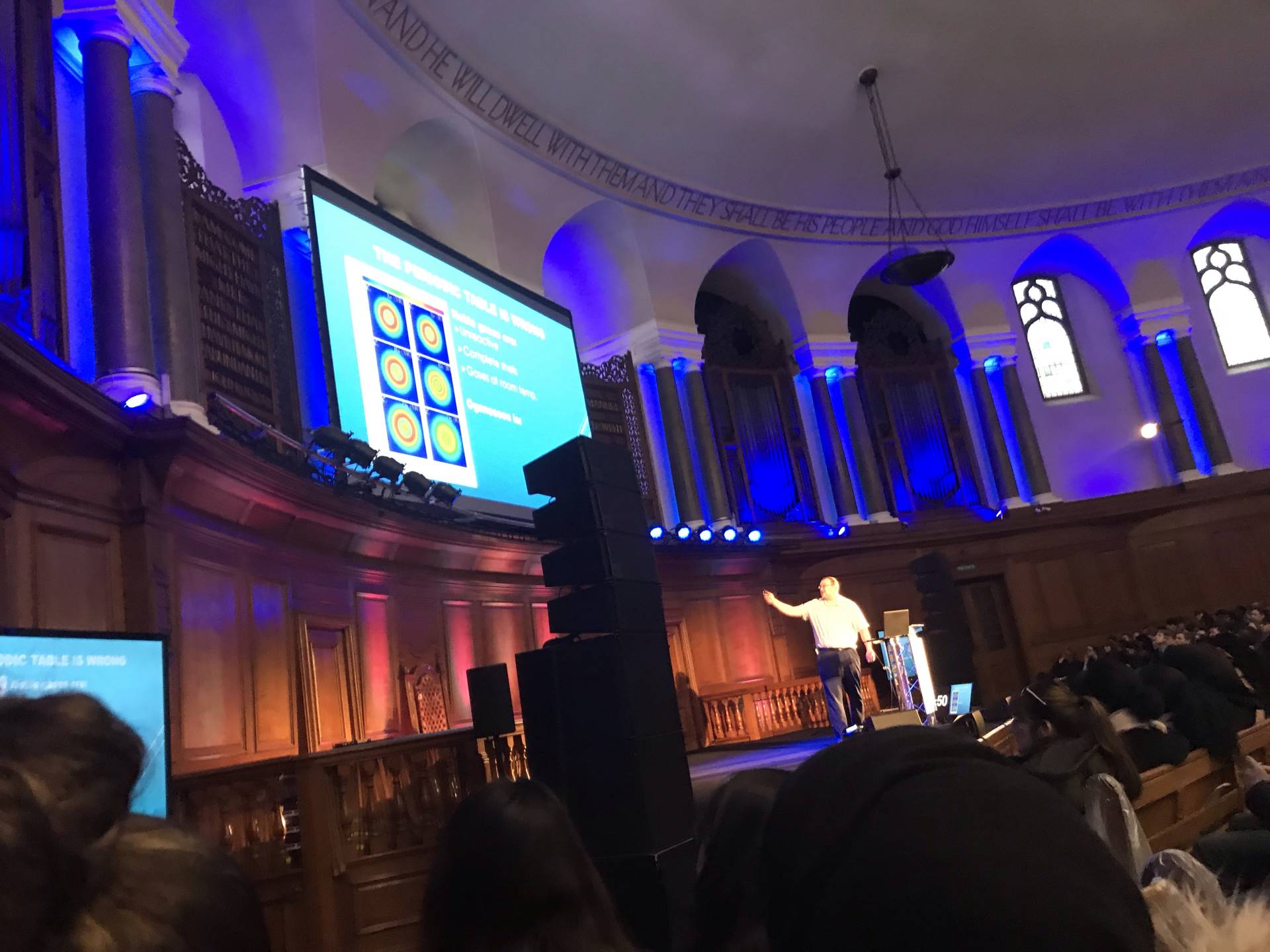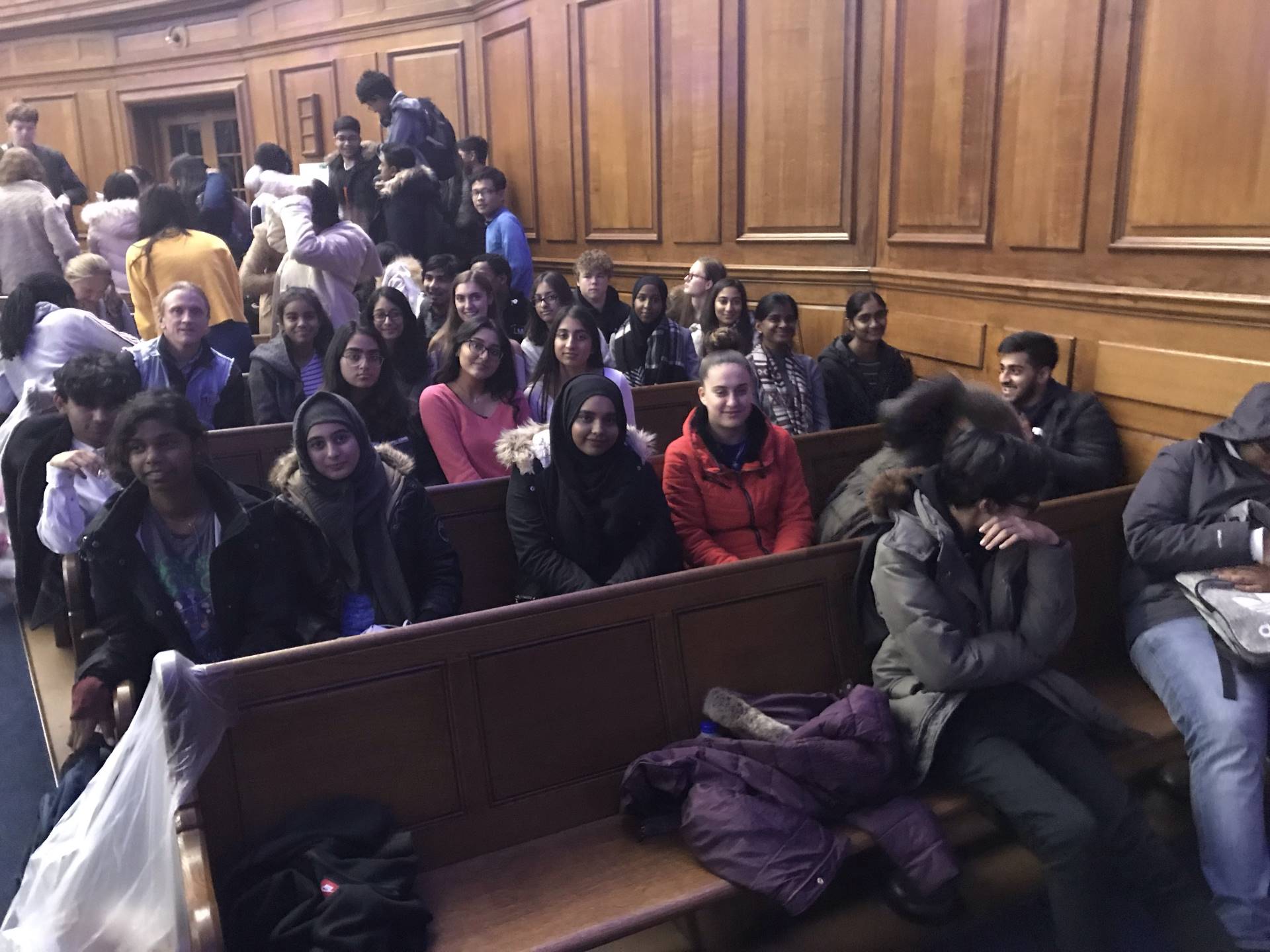Chemistry In Action
 On Friday, the 23rd of November, 20 aspiring sixth form students attended a ‘Chemistry in Action’ lecture which was situated at Emmanuel Centre in Central London.
On Friday, the 23rd of November, 20 aspiring sixth form students attended a ‘Chemistry in Action’ lecture which was situated at Emmanuel Centre in Central London.
The morning was opened by an award-winning science journalist, Kit Chapman, who talked about the secrets to discovering a new chemical element and the difficulties a chemist faces when preparing a new element if its atoms can only exist for less than a millisecond. However, the successful scientist will have the luxury of naming the element. We were asked what names we would pick for a new element and it was settled that if a new element was discovered, it would be named ‘hurricanium’!. Next, a chemical engineer, Yasmin Ali gave an inspiring speech about how its never too late to change your ambitions and doing what makes you happy gets you the furthest. She also explained how chemical engineers are in such a high demand and how they are embedded into all sorts of industrial companies such as textiles, aerospace and power plants. After that we were faced with a dilemma by Dr Jamie Gallagher, a scientist and science communicator, on the importance of plastic in our lives despite it damaging the environment. We were made aware that it takes thousands of years for polymers to decompose in landfill sites and the importance of knowing the different symbols of recycling when buying products. Before lunch we had a 20-minute session on hints and tips for revision and exams and the common mistakes all students should avoid. After lunch a chemist and author, Kathryn Harkup, unravelled the science behind the science fiction novel Frankenstein by Mary Shelley and how Victor Frankenstein would have collected and preserved the body parts in different ways and if an electric shock could actually revive a dead body, which later corresponded to the creation of a defibrillator. Lastly Peter Wothers, a lecturer in chemistry at the University of Cambridge, informed us about the history and the mistakes made before the first accurate periodic table was laid out by Dimitri Mendeleev.
Overall, the lecture had advanced our knowledge in chemistry and gave us a view of the large scope of chemistry and how there are no limitations set to it.


